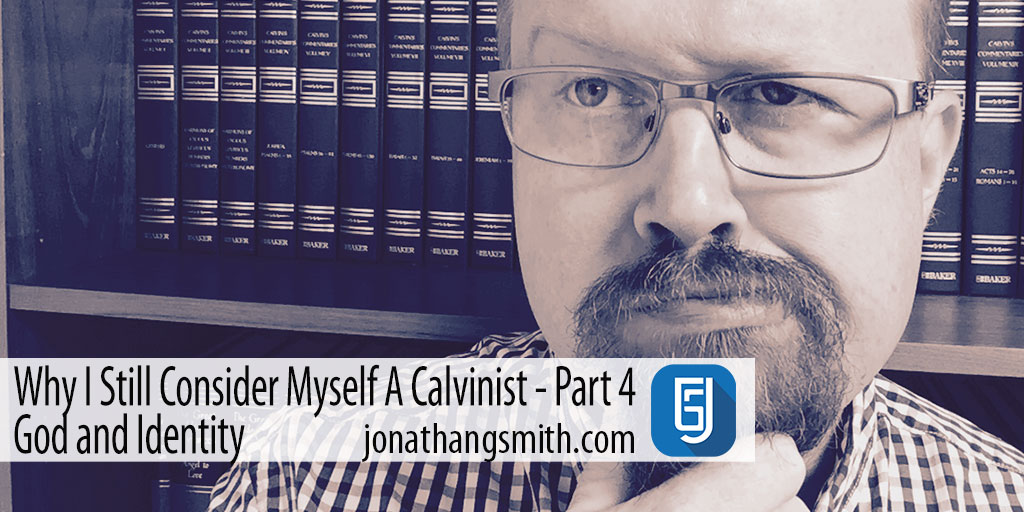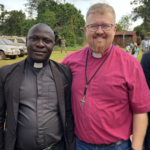
Why I Still Consider Myself A Calvinist? God and Identity Part 4

If you are tired of hearing about sexual identity issues. I understand. But before you start tuning out of identity conversations, let me give you a new reason why we need to continue talking about it. How a person identifies themselves speaks volumes about their relationship with the divine.
In this final post of this series, I want to turn my attention to this premise. John Calvin was an evangelical whose central concern was the same as many of us today – basing our identities in the one, true and living God.
Craft-Brewed Micro-gods
You would be hard-pressed to find the word “relationship” in Calvin’s Institutes. Admittedly I haven’t had the chance to search through them all. But Calvin understood better than anyone the condition of the heart. Humanity is a micro-god manufacturing plant. In other words, we are masters at substituting a relationship with the one, true living God with a lesser micro-god.
What exactly is a micro-god? That term is one I coined for this series. A more familiar religious term is idol. My problem with that word is its familiarity. We have become so accustomed to the word idol and idolatry that its potency seems lost. Micro-gods, on the other hand, communicates an idea I think may be more helpful – our tendency to substitute the God of the universe for something infinitely smaller.
But what does “God of the universe” look like? When Reformed theologians describe God, they usually use words like sovereign, transcendent, incomprehensible, and at times unknowable. But they do not stop here. They also refer to God with other words like present, immanent, knowable, and near. Here the familiar duality is present. God is both transcendent and immanent.
Our problem is the constant tendency to replace the sovereign, transcendent and infinite God with a finite hand-crafted micro-god of our making. We see evidence of this trend in our present focus on personal identity.
We have now crafted all kinds of identities all complete with their own lifestyle choices. The problem? Almost all of them have identities based on something other than a relationship with God.
God and Identity
Where John Calvin helps our present cultural milieu is his opening paragraphs of his Institutes of the Christian Religion. He writes, “Without knowledge of self there is no knowledge of God. Without knowledge of God, there is no knowledge of self.” To paraphrase him, we can’t really know God until we know ourselves. But, paradoxically, we can’t know ourselves unless we know God. So our self-view is completely dependent on a relationship to God.
Through genuine discipleship of discovering, learning, and seeking God, we discover, learn, and find ourselves. Here, though, is a frightening underlying truth. Depending on what we desire to be God will ultimately shape and inform our view of our self. That is how dependent we are on the divine. We really can’t accurately see ourselves without a divine lens.
Another way of looking at this is through the lens of worship. We worship what we desire. That applies to a church person who sits on the front row on Sunday morning as well as a gay man who sits in a bar the night before. Desire ultimately drives our relationships.
John Calvin’s Contribution
There is no doubt that Calvin’s contribution to western European Christianity will be felt for hundreds of years to come. How his contributions will be received may vary with the needs of each generation. In our day, I believe Calvin’s contribution rests squarely in his understanding the importance of truly knowing God and the impact that relationship has on our self.
I’m saddened by the reality that most people dismiss Calvin because of his theology being identified with the Council of Dordt. That’s most unfortunate. Calvin has far more to offer than just the Five Points of Calvinism. He is worth reading, even if you do not embrace every tenet of his theology.
In summary, what we believe to know of God shapes and determines everything in life. How we view our self, what we say about ourselves, and the way we interact with others speaks volumes about what we believe God to be.




